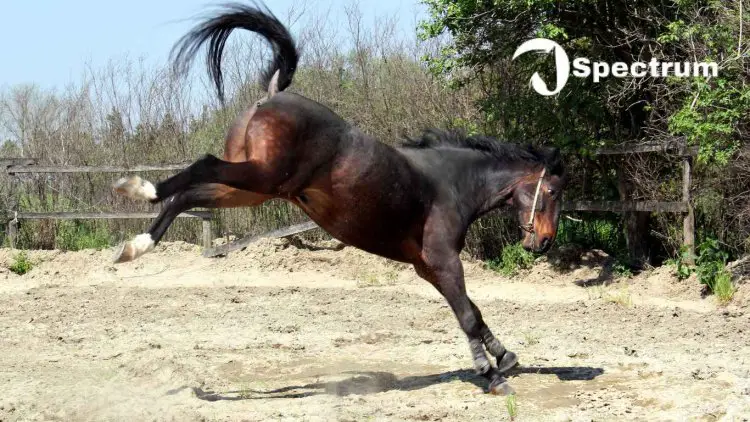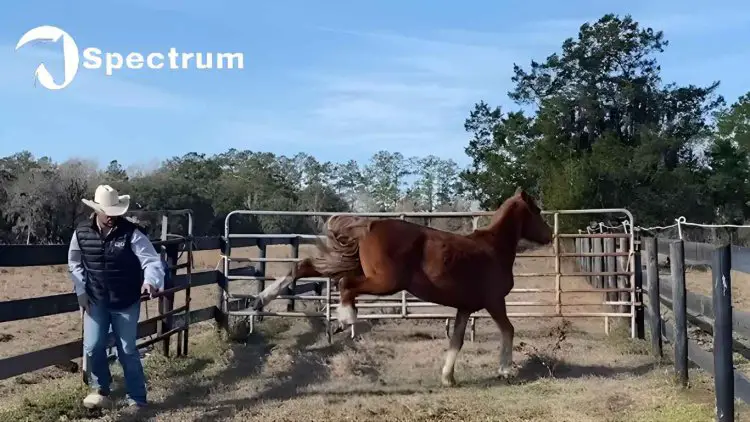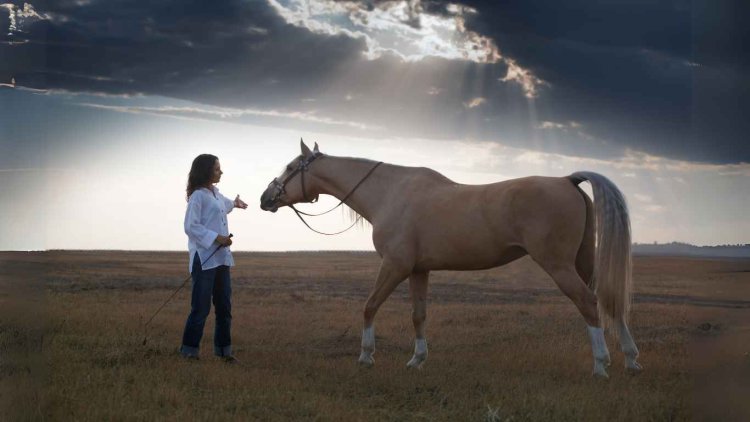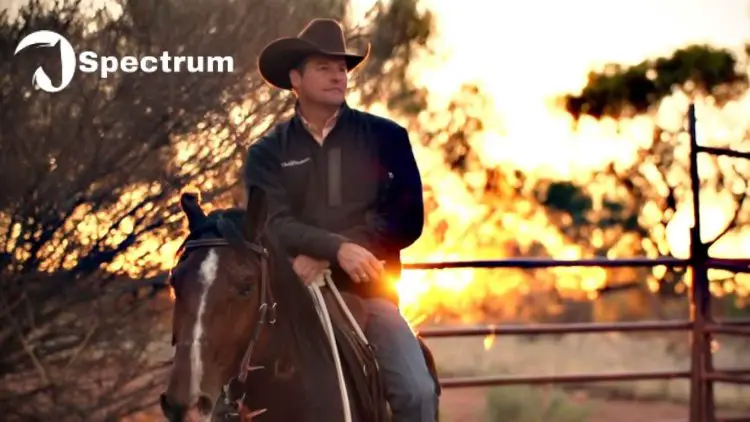How to Stop a Horse From Kicking?
Learn how to stop a horse from kicking with our expert guide. Discover the reasons behind horse kicking behavior and what approaches you can use to train a horse not to kick. From building trust and using training tools to Clinton Anderson's Groundwork techniques, our article covers it all. Avoid common mistakes in horse training and find answers to FAQs: what causes a horse to kick and how to avoid getting kicked. Read on to master the art of training horses that kick.

Table of Contents
Introduction
Equine behavior can be a challenge to comprehend, especially with horses that kick. This dangerous habit is a concern for many horse owners. Understanding what prompts a horse to kick and learning how to train a horse not to kick can transform a potentially aggressive horse into a well-behaved equine partner. This article will guide you through the process of curtailing this bad habit in your horse.
Understanding Why a Horse Kicks

Interpreting Equine Body Language
It's integral for a horse owner to understand what a horse's body language signifies. An agitated horse often pins its ears back, bucks, swishes its tail vigorously, and lays its hind legs back, ready to deliver frustration kicks. Thus, observing the horse’s body language could provide an early warning, helping avert getting kicked.
Reasons Behind a Horse Kick
A horse may kick for several reasons. Unraveling these could be the first step in stopping it from kicking. This kicking or biting is often a communication tool for the horse.
Defense Mechanism: Wild horses communicate with their bodies and defend themselves by kicking. In captivity, horses kick when they feel threatened, cornered, or when they sense danger. A sudden movement or approach from behind may trigger this defense mechanism.
Expressing Discomfort or Pain: Horses can't communicate verbally, so they may start kicking if they're in pain or discomfort. For instance, if their equipment is incorrectly adjusted, it could be hurting them, leading them to kick. They could also kick out when internal problems like colic are bothering them.
Hoof Injuries: Hoof-related discomfort or pain can often lead to a horse exhibiting kicking behavior. Addressing any signs of discomfort or pain in the horse's hind feet promptly can significantly reduce the likelihood of kicking.
Fear: Horses may kick out of fear or anxiety. For example, a new environment, loud noises, unfamiliar people, or other animals can provoke fear, leading to a kick.
Dominance Assertion: Sometimes, a horse will kick to assert dominance within a herd. The horse could also be trying to establish its boundaries with other horses or humans.
Training and Handling Issues: Lack of proper training and handling can often trigger kicking in horses. They may have been subjected to harsh training methods in the past or were handled incorrectly, instilling fear, or creating negative associations with certain actions or objects.
Playfulness: At times, horses kick during play. In the wild, foals play fight and kick each other as part of their socialization. Although this is generally harmless, an overly playful horse may need to be trained to kick less, particularly if around people.
Aggravation or Frustration: When a horse feels irritated or frustrated, it might use a kick to express these feelings. For example, if a horse struggles to be released from a confined space, unrelenting fly bites, or another horse’s nipping, they may kick out of frustration.
Attention Seeking: Some horses kick to get attention, especially if they have learned that kicking prompts a handler to provide food, care, or other types of attention.
Understanding these reasons can be crucial in preventing a horse from kicking, as well as safeguarding the horse and people around it. Each type of behavior calls for a different approach to solve the problem. Always remember a horse’s kick can be very powerful and dangerous.
Practical Steps to Train a Horse Not to Kick

With patience and the right approach, you can teach a horse to stop kicking. Remember, the horse didn't develop this habit overnight, and it would take a while for it to unlearn this behavior too. By working on the following methods, you can train your horse not to kick.
Steps Involved to Stop a Horse From Kicking
Identify the Cause: Before you start training your horse to stop kicking, it's important to understand why it's engaging in this behavior in the first place. Horses often kick out of fear, discomfort, or irritation. Identifying the root cause can help you address the problem more effectively.
Work on Trust-Building: Develop a relationship with your horse where it feels safe and trusts you. Spend time with your horse, not only when riding but also when grooming, feeding, or just hanging out.
Consult with a Veterinarian: Sometimes, horses kick due to physical discomfort or pain, so getting a vet involved can be very helpful. The vet can rule out any physical issues, and if needed, give proper medication.
Use Training Tools: Training tools such as a round pen can be used. Initially, let your horse run freely inside the round pen. When it kicks or turns its rear towards you, move towards it in a non-threatening manner, so it turns and faces you. With time, it will understand that you are not a threat.
Reward Positive Behavior: Whenever your horse behaves correctly and does not kick when you touch or go near its hind end, reward the horse for not reacting negatively. This could be a treat or a soothing stroke.
Avoid Triggering Situations: Try to steer clear of situations that trigger the horse's kicking behavior. Once your horse has stopped kicking, gradually expose it to these situations again, while reinforcing the training.
Desensitize the Horse: Begin by touching the horse gently and progressively moving to more sensitive areas like legs and behind. Do it slowly to desensitize the horse to being touched in these areas.
Using Pressure and Release: This is an effective method where you apply pressure to prompt a response, and then release it when the horse responds correctly. This shows that respecting boundaries can lead to positive experiences for the horse.
Related: The Art of Horse Whispering: Building Trust and Connection
Clinton Anderson's Groundwork Techniques for 'Kickers'

Using Clinton Anderson's Groundwork techniques can help train a horse that kicks. Anderson’s Clinton training techniques focus on building a respectful relationship with the horse. Make sure the horse fully understands the command to move its hindquarters away from you. This is usually known as "disengaging the hindquarters". This technique helps the horse to understand that it must turn away and not kick when someone approaches from behind. Use your stick to gently tap the horse's hindquarters, signaling it to move them away. Keep the pressure consistent, increasing it slightly if the horse does not respond. Release the pressure as soon as the horse moves its hindquarters away from you.
Addressing Common Mistakes in Training a Horse That Kicks
A common mistake some horse owners make is punishing the horse each time it kicks. This can make the horse feel threatened and might escalate its aggressive behavior. Instead, reward the horse when it doesn't kick. Associate positive actions with reward and the horse would eventually stop kicking.
FAQs
Can you teach a horse not to kick?
Yes, you can teach a horse not to kick. It requires patience, consistency, and a solid understanding of horse behavior. The process typically starts with identifying and mitigating the reasons why a horse might kick, such as fear, discomfort, or dominance behavior. Training methods can include desensitizing the horse to certain triggers, teaching it to associate kicking with negative consequences, and rewarding calm non-aggressive behavior. It's important to remember that each horse is unique, thus the approach might need to be individualized.
How do you avoid getting kicked by a horse?
To avoid getting kicked by a horse, it's crucial to understand and respect the animal's personal space. Always approach a horse from the side rather than directly behind, where its blind spots are. Move calmly and predictably, and make sure the horse knows you're there by speaking softly or gently touching it. Never startle or rush a horse, as it might react defensively. Understanding a horse's behavior and signals will also help anticipate any potential kicks.
What causes a horse to kick you?
A horse can kick you for several reasons. Primary causes include fear, dominance, and self-defense. Horses can be startled by sudden movements or surprises. In this case, kicking is a fear response. Some horses might kick to assert dominance or establish hierarchy within the group. If a horse is ill or in pain, it may lash out when certain areas are touched. In many instances, unfamiliarity or a breach of trust can also result in a horse kicking.
What's Your Reaction?

















